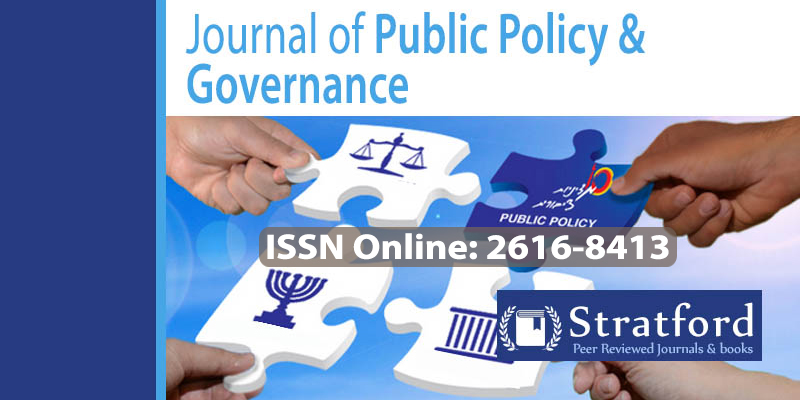Relationship Between Trade Liberalization, Public Governance and Tax Revenue of the East African Community Member Countries
DOI:
https://doi.org/10.53819/81018102t3133Abstract
Although tax revenue remains critical in meeting developmental challenges for all nations, tax mobilization in most developing countries like EAC affiliated countries has remained below potential due to numerous challenges among them wanting state of governance in tax administration. In light of the foregoing, developing countries like East African Community (EAC) member countries have prioritized numerous reforms such as trade liberalization with aim of enhancing tax revenue performance. However, due to varying state of public governance across these countries, the nature of the relationship between trade liberalization and tax revenue has largely remained unclear necessitating the need for an empirical study. In response to this development, this study sought to determine the effect of trade liberalization and public governance on tax revenue of east Africa community member countries. The study applied descriptive research design and collected secondary data from period 2000 to 2023. The collected data was analyzed using multiple linear regression. The findings revealed that public governance significantly influence relationship between trade openness and tax revenue of east Africa community member countries. This finding underscores the importance of creating a favorable investment climate devoid of extreme corruption levels for purpose of attracting foreign direct investment (FDI) as a strategic approach to enhance tax revenue performance across the EAC region. Also, this implies that governments must integrate governance reforms particularly anti-corruption plans into their trade policy frameworks to ensure that the benefits of liberalized trade are realized through increased tax revenue collection.
Keywords: Trade Liberalization, Public Governance, Tax Revenue, East Africa Community Member Countries
References
Dragusha, B., Hasaj, B., Kruja, A., & Lulaj, E. (2023). The Impact of Foreign Trade Liberalization on Albania’s Economic Growth, Journal of Eastern European and Central Asian Research 10(2), 189–200
Dramane, A. (2023). Tax Revenues Effects of Corruption and Governance in Waemu Countries, Journal of Economic Development, 47(4), 1–20
Farazmand, A. (2023). Public Administration, Public Policy, and Governance. 2rd Edition
Ho, T., Tran, X. H., & Nguyen, Q. K. (2023). Tax Revenue-Economic Growth Relationship and the Role of Trade Openness in Developing Countries. Journal Of Cogent Business & Management, 10(2), 1–14
Jensen, M. C., & Meckling, W. H. (1976). Theory of the Firm: Managerial Behavior, Agency Costs and Ownership Structure. Journal of Financial Economics, 3(4), 305–360
Kurusic, D., Kurtes, S. And Amidzic, S. (2023). Impact Of Trade Openness, Human Capital Through Innovations on Economic Growth: Case of Balkan Countries, Innovative and Economic Research Journal 11(2)
Mahran, H. A. (2023). The Impact of Governance on Economic Growth: Spatial Econometric Approach, Review of Economics and Political Science, 8(1), 37-53
OECD (2021). Government at a Glance. Paris. OECD Publishing Report
Oyinlola, M. A., Adedeji, A. A., Bolarinwa, M. O., & Olabisi, N. (2020). Governance, domestic resource mobilization, and inclusive growth in sub-Saharan Africa. Economic Analysis and Policy, 65, 68–88
Watson, G. (2023). Time to Rethink How the World Bank Operates
World Bank (2021). Global Economic Prospects, Slow Growth, Policy Challenges. Report
Zaki, N. (2020). The Impacts of Corruption on Attracting Foreign Direct Investment, Eureka: Journal of Social and Humanities, (4), 10-14


